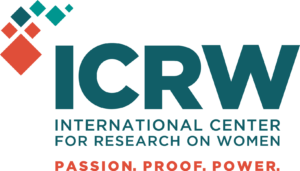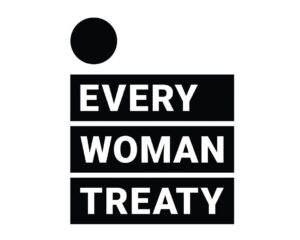Para la versión en español, haga clic aquí.
[We are no longer accepting submissions. Thank you to all who have contributed.]
The War Prevention Initiative (WPI) is seeking submissions for an essay un-contest on a feminist foreign policy.
At the War Prevention Initiative, we center our analysis on the challenge to militarism and the assumption that the use of violence, force, and domination is necessary to solve conflict. We are inspired by the growing movement calling for a feminist foreign policy. We believe that a feminist foreign policy offers a new paradigm to conduct international and interrelated domestic affairs that shifts away from militarism as the default response to conflict, centers the lived experiences of vulnerable and marginalized populations, and critically examines the meaning of security.
We want to challenge ourselves and potential contributors to ask: What does your feminist foreign policy look like?
Why an “Un-contest”
Why an “un-contest”? This project is not about determining winners and who comes out on top. This is about all of us challenging ourselves to advance the thinking around ideas of a feminist foreign policy. By offering money to those who we are able to publish and using our Peace Science Digest platform to showcase them, WPI simply wants to recognize the efforts by going beyond a heartfelt ‘thank you.’
Project Description
There are numerous global challenges that require global and local responses. Yet, the ability of countries and communities to cooperate at the minimum level required to collectively solve global challenges is woefully lacking. For instance, consider the challenge of climate change. Despite having full knowledge of science and risks underlying a hotter climate, many countries (especially those most responsible for carbon emissions) have repeatedly failed to take meaningful action. The adherence to militarism and the lack of action on key global challenges is a noticeable pattern–including trends on overall levels of peacefulness, war and atrocity prevention, nuclear disarmament and nonproliferation, arms control, democratic backsliding, the rise of authoritarianism, human rights and civil liberties, and other key priorities of the foreign policy agenda.
In short, the “old” way of conducting foreign affairs is failing to address global challenges of the 21st century, neglects addressing the linkages between foreign policy and domestic conditions, and makes everyone less secure. Consequently, this project should speak to all who are addressing different sets of issues, forms of oppression, power structures, and inequalities regardless of their self-identification as feminists or foreign policy experts.
We are launching this essay un-contest to explore possibilities for advancing a feminist foreign policy. We are interested in learning what a feminist foreign policy means, especially to those outside of elite policy circles. A feminist foreign policy attempts to center the voices from communities that are rendered vulnerable or marginalized from the traditional way that foreign policy is conducted. Importantly, a feminist foreign policy is not exclusively concerned by the ways in which women are made vulnerable or marginalized as well as reduced to foreign policy issues only. Rather, it adopts an intersectional feminist lens that acknowledges how multiple, overlapping identities–such as gender identity, race and ethnicity, ability, or economic status–interact to make some people more privileged than others and how domestic and foreign policy issues interact. We are interested in hearing what a feminist foreign policy would look like from this perspective.
A selection of submissions will be published in the Peace Science Digest. Authors will be invited to join the War Prevention Initiative and others in forthcoming convenings and publications on a feminist foreign policy.
This un-contest and how we address white supremacy culture
We are mindful of how award money, even in the format of an ‘un-contest,’ can have subtle and direct characteristics of white supremacy culture (listed in italic font). We try to avoid them in the following manner:
- Perfectionism – we want to approach all submissions with a deep sense of appreciation and let the contributors know; we focus on what is good
- Sense of urgency – for operational purposes we will have a submission due date; however, we realize that some contributors might be caught in a well-known last-minute struggle to submit (including technical difficulties). We encourage contributors to contact us and let us know if they need more time
- Worship of the written word – we have purposefully allowed for audio and photography submissions to expand the accepted format away from text only; we will not prioritize perfect writing over thoughtful, creative, or valuable ideas and will instead work with the contributor on edits if an essay is chosen for publication
- Only one right way – we offer limited guidance on the characteristics of a feminist foreign policy the way our community views them to make sure contributors have enough creative freedom to set their own tone for the submission
- Paternalism, power hoarding, and objectivity – we are transparent about the selection committee which consists of several non WPI members and is intentionally diverse (demographically and professional/personal backgrounds); in doing so we hope to move away from the idea that we (WPI) are ‘objective’ gatekeepers of what is a good submission
- Individualism – this project does not have to be about one person “taking home the prize”; we accept individual submissions from up to 5 co-contributors
Essay Questions and Criteria
We ask that submissions respond to one or more of the following prompts:
- What does a feminist foreign policy mean to you?
- How does a feminist lens to foreign policy differ from how foreign policy is conducted today?
- Identify a policy issue—domestic or foreign— (e.g., nuclear weapons, climate change, atrocity prevention, gun violence, police violence, immigration, human rights, election rights, reproductive rights, etc.) and describe how a feminist foreign policy approach could result in meaningful change to a more peaceful world.
- How could a transition to a feminist foreign policy disrupt power hierarchies embedded both in how countries internally develop foreign policy priorities (i.e., domestic structures) and in international relations between countries (i.e., global structures)?
- What questions are we not asking and should be asking when it comes to a Feminist Foreign Policy?
We accept photo, audio, and written essays in English and Spanish. One submission per person and up to 5 co-contributors for one submission. Please view content specific requirements.
Photo Essays
- Photo submissions should contain no more than 15 images and should include a title and author(s) name.
- Original photography only.
- Photo captions and descriptions encouraged.
- Selected submissions are subject to free and fair use.
- Non-selected submissions will not be republished or re-used by the War Prevention Initiative or the Peace Science Digest unless approved following the written permission of the author.
- Excessively vulgar, offensive, sexually explicit, or otherwise sensitive imagery determined at the discretion of the selection committee will not be considered.
Audio Essays
- Audio submissions should not exceed 10 minutes and should include a title and author(s) name.
- Audio files accepted: .mp3, .m4a, .ogg, .wav
- Selected submissions are subject to free and fair use.
- Non-selected submissions will not be republished or re-used by the War Prevention Initiative or the Peace Science Digest unless approved following the written permission of the author.
- Excessively vulgar, offensive, sexually explicit, or otherwise sensitive language determined at the discretion of the selection committee will not be considered.
Written Essays
- Word count is up to 1,000-1,200 words (excluding citations and footnotes) and should include a title and author(s) name.
- Submissions will be screened for plagiarism and may be subject to disqualification if sources are not acknowledged and cited properly.
- Citations in APA style is highly encouraged but not required; if you are not familiar with this citation style, we ask for clear references that help the readers identify the source.
- Non-selected submissions will not be republished or re-used by the War Prevention Initiative or the Peace Science Digest unless approved following the written permission of the author.
- Excessively vulgar, offensive, sexually explicit, or otherwise sensitive language determined at the discretion of the selection committee will not be considered.
How to Submit
- Submission form: https://forms.gle/iWG5g4MCveKxRVxR6
- Submissions will be via text into a box on the form or via URL into the same box – that way nobody must be signed in with a google account to submit (file submissions require a google account)
- Contributors who have files should make them available via downloadable link or send to digest@warpreventioninitiative.org with the subject line: “Submission Un-contest on a Feminist Foreign Policy”
- We will carefully screen any files or links for malware/viruses prior to opening—when in doubt, we will not open files or links and reach out to the contributor
- Selected entries will be published in the Peace Science Digest.
- 5-7 entries will be published
- We offer a $500 compensation for each published entry
We are accepting submission until 11/11/2022
(if you’re a few days late, let us know and we’ll make sure to consider your submission as well)
Sponsors
We thank the following sponsors (in reverse alphabetical order):
+++
+++
+++
+++
+++
+++
We are profoundly grateful to Nansie Jubitz, who encouraged family and friends of her late husband Ray Jubitz to remember Ray by contributing to the War Prevention Initiative. We committed the contributions to this project, as it so powerfully reflects Ray's constant curiosity and willingness to question his own assumptions when it came to his commitment to build a more just and peaceful world.








